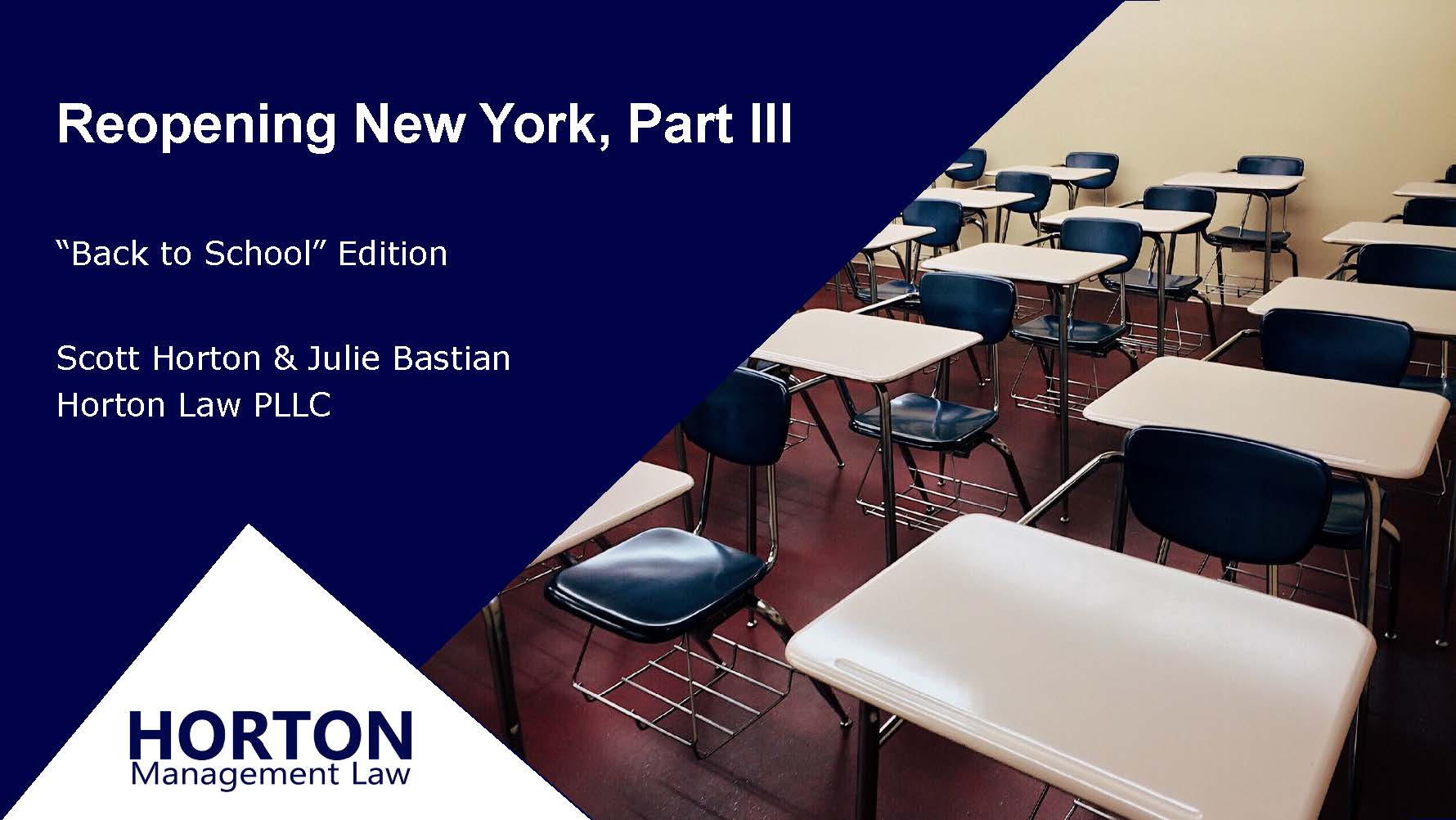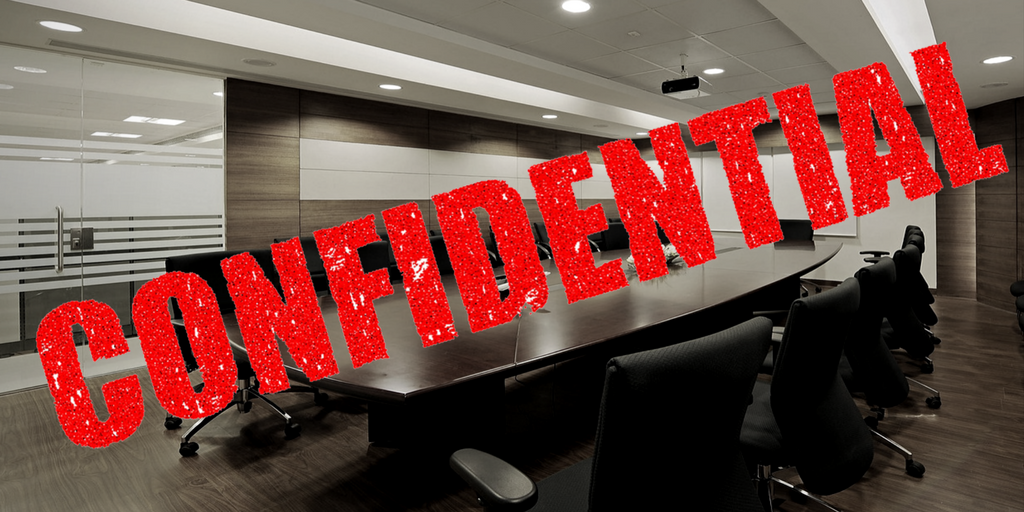On February 4, 2019, the National Labor Relations Board (NLRB) set the stage to review whether it should exercise jurisdiction over charter schools. In two 2016 cases, the NLRB agreed to cover charter schools that are not political subdivisions–i.e., that are not traditional public school districts. At that time, the Board consisted of a majority of Democratic members who favored expanding protections for unions and employees. The NLRB now has a Republican majority.
[For more general information, read: NLRB Jurisdiction: Are We Covered?]
What’s the Issue?
The NLRB has the authority to enforce the National Labor Relations Act (NLRA). This law applies to private, but not governmental employers. Some states have their own similar laws and agencies related to labor relations rights and unionization among public employers. Charter schools have raised questions of the boundaries between these separate legal regimes.
Charter schools are still a relatively new concept. The first ones opened less than 30 years ago. Their exact organization and structure vary based both on applicable state laws and the way the school themselves choose to operate. As their name suggests, these schools typically operate under a “charter” and receive state educational funding. Parents usually have greater freedom in choosing among charter schools, whereas public school “selection” depends primarily on where the students live.
“Political subdivisions” are exempt from coverage under the NLRA. Thus, whether charter schools are “public subdivisions” determines whether the NLRB has jurisdiction over their union-related disputes.
2016 Charter School Decisions
On August 24, 2016, the NLRB issued two decisions finding charter schools to be private corporations serving as government contractors. In other words, they were not political subdivisions. The cases involved Hyde Leadership Charter School in Brooklyn, New York, and Pennsylvania Virtual Charter School, a home-based school headquartered in King of Prussia, Pennsylvania.
Before these cases reached the Board itself, two Regional Directors of the NLRB had respectively applied a 1971 legal standard and found that the schools were not political subdivisions. The Board agreed in separate split decisions featuring dissenting opinions by the lone Republican member at the time.
Of note, among many other considerations, New York law states that charter schools are “within the public school system”. But the 2016 NLRB did not accept the state’s description as deciding federal law.
Hawkins County Test
In the 1971 Supreme Court case of NLRB v. National Gas Utility District of Hawkins County, 402 U.S. 600, the NLRB relied on a two-part test to determine whether an employer is a political subdivision excluded from NLRA coverage. The Board maintained that an entity was a political subdivision if it is “either (1) created directly by the state, so as to constitute departments or administrative arms of the government, or (2) administered by individuals who are responsible to public officials or to the general electorate.” In Hawkins County, the Supreme Court rejected the NLRB’s conclusion that the utility company in question was not a political subdivision. In other words, the Court held, the Board did not have jurisdiction. The Court observed that the employer was a political subdivision under the second prong of the NLRB’s test, among other factors.
To be clear, Hawkins County did not involve a charter school. Minnesota created the first U.S. charter school law 20 years later in 1991. The Supreme Court has not yet weighed in on the question of NLRA jurisdiction of these “new” educational institutions.
Kipp Academy Charter School
A pending NLRB case involves Kipp Academy Charter School in Bronx, New York. A union currently represents the school’s teachers among other categories of employees. In January 2017, two teachers filed a petition with the NLRB seeking to decertify the union. The union argued the NLRB did not have jurisdiction. Following the Hyde Park and Pennsylvania Virtual charter school cases, the NLRB Regional Director exercised jurisdiction and directed the election.
Board Agrees to Review
On appeal, NLRB Chairman John Ring and fellow Republic Members Marvin Kaplan and William Emanuel voted to review whether the NLRB should exercise jurisdiction over charter schools. In doing so, they issued a public request for legal briefs from any interested parties.
Notably, the Republican majority acknowledged that the Regional Director had correctly applied the two-part Hawkins County test. Nonetheless, they want to reconsider whether, as a policy matter, the Board should exercise their jurisdiction, which is discretionary. They might, for example, share the view that former NLRB Chairman Philip Miscimarra noted in his 2016 dissents:
“Based on the approach embraced by my colleagues today, employees concerned about their working conditions will not know what set of rules apply to them or to whom to turn if the employer infringes on their rights, and employees are likely to face years of delay if they try to secure relief from the NLRB. Unions and employers will have difficulty understanding their respective rights and obligations, given the uncertainty about whether federal, state, or local laws apply. Most poorly served will be the students whose education is the primary focus of every charter school. In most instances, the likely result will be protracted disputes that are not definitively resolved until many or most students (and many teachers and other employees) have come and gone.”
…But Not Everyone Is on Board
The lone Democrat currently on the NLRB, Lauren McFerran, participated in the majority decisions to exercise jurisdiction over Hyde Park and Pennsylvania Virtual Charter Schools. Therefore, it is no surprise that she disagreed with the decision to review the Regional Director’s decision regarding Kipp Academy.
Member McFerran contends:
“There are not new policy justifications or legal grounds to revisit the Board’s approach to analyzing jurisdictional questions involving charter schools. Indeed, the majority identifies no specific reasons at all for granting review here. Certainly, a change in the composition of the Board is not a reason for revisiting precedent, as the Board itself has made clear.”
Invitation to File Briefs
The public has until March 6, 2019, to submit briefs arguing their views on the exercise of NLRB jurisdiction over charter schools. Submissions may not exceed 25 pages in length. They must be filed electronically through the NLRB’s website, and copies must be sent to all case participants.
How Will This Affect Charter Schools?
The Board majority emphasizes that they “have made no judgments about the ultimate merits but choose to review the briefs before arriving at any conclusions”. However, it is fair to guess that they might at least be leaning toward declining jurisdiction. That outcome, however, won’t affect all charter schools equally.
In some states, like New York, charter school employees and unions already have strong alternative legal protections under state law. If the NLRB does not exercise jurisdiction, state agencies still might (and, generally, probably would) step in and do so. In other states, however, no NLRB jurisdiction would effectively eliminate the right to unionize for charter school employees.
And even where alternative state laws apply, the specific rights and procedures available might differ in relevant ways. This reality could be motivating parties in the Kipp Academy case itself.
Individual charter schools curious about the potential impact on them should consult directly with experienced labor counsel.
For more on the NLRB’s jurisdiction over employers generally, click here.


